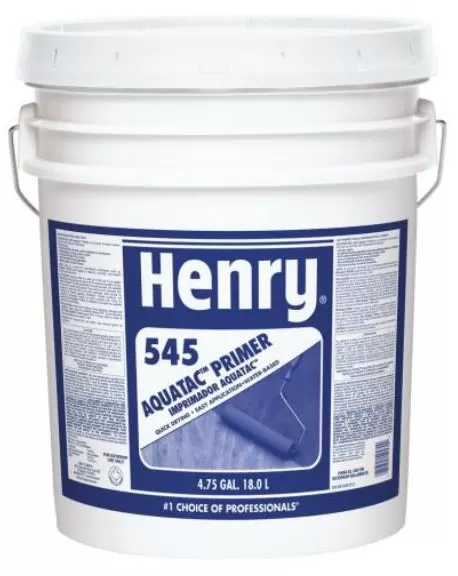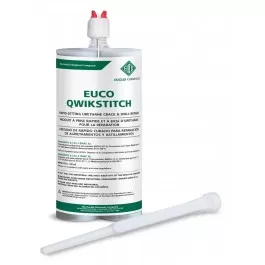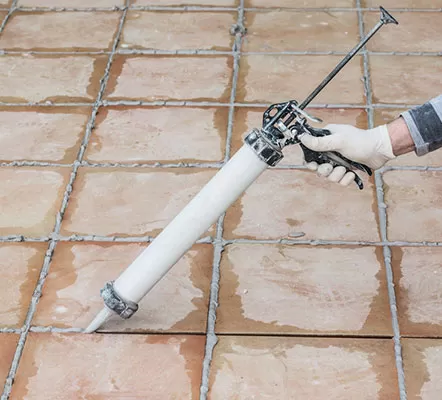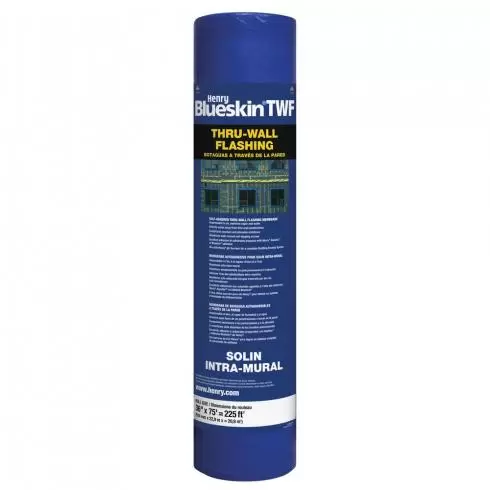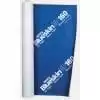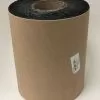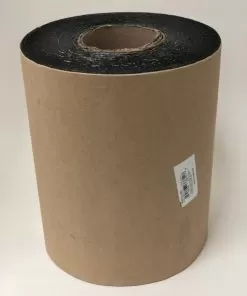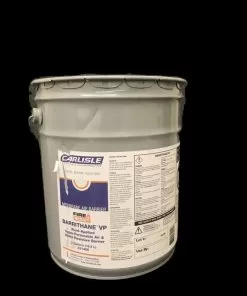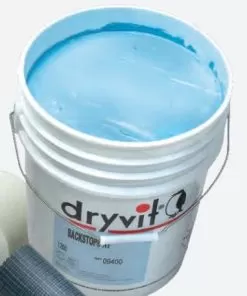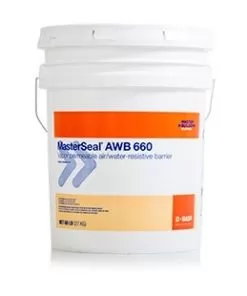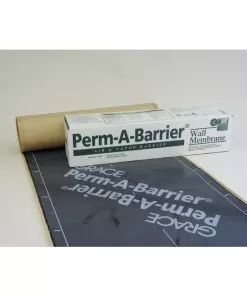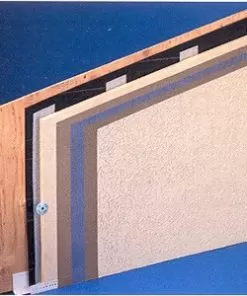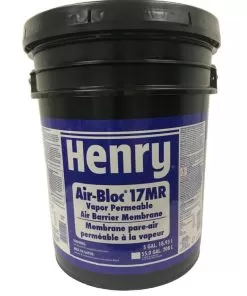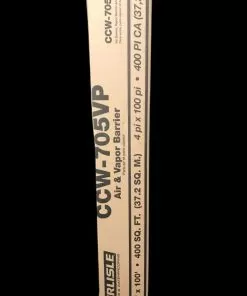Blueskin TWF: Henry Through Wall Flashing Membrane
$99.65 – $301.39Price range: $99.65 through $301.39
-Impermeable to air, moisture vapor and water.
-Flexible at low temperatures.
-Excellent adhesion to prepared substrates.
-Excellent compatibility with Henry adhesives, waterproofing and liquid air barrier membranes.
-Exceptional puncture and abrasion resistance.
-Membrane is self-gasketing when penetrated with self-tapping screw
Blueskin TWF: Henry Through Wall Flashing Membrane
Blueskin TWF is a self-adhered membrane consisting of an SBS rubberized asphalt compound which is integrally laminated to a tough, yellow cross-laminated polyethylene film. The membrane is specifically designed for use as a thru-wall flashing. Available in standard: 18″, 24″ and 36″ widths. Custom widths also available. Questions? Contact Us.
Surface Preperation:
Acceptable substrates are precast concrete, cast-in place concrete, concrete block, primed steel, aluminum mill finish, anodized aluminum, galvanized metal, gypsum board and wood. All surfaces to receive Blueskin TWF must be clean of oil, dust and excess mortar. Strike masonry joints flush. Concrete surfaces must be smooth and without large voids, spalled areas or sharp protrusions. Concrete must be cured a minimum of 14 days and must be dry before Blueskin TWF is applied. Apply Blueskin Primer, Spray Prep or Aquatac Primer by brush or roller at the rate of approximately 300 ft²/gal, depending on porosity and texture of surface and allow to dry for a minimum of 30 minutes before Blueskin TWF is applied. Allow additional time for primer to set if wet to the touch or can be easily rubbed off. Ensure that all primed surfaces receive Blueskin TWF in the same day or re-priming may be required.
Material should be conditioned at room temperature for ease of application. Cut the desired length of Blueskin TWF and remove siliconized release paper. Position into place and apply positive pressure using a roller. Use care to avoid blisters or wrinkles. Overlap all joints by 2″. Keep Blueskin TWF back ½” to 1” from outside face of wall or veneer. At all laps, seams, penetrations, and along top edges of membrane apply a continuous bead of HE925 BES Sealant or Polybitume as termination seal. Form end dams as required with same sealant.
Finish your job with Henry:
Henry Air Bloc Liquid Flashing
Store rolls on end, in original cartons on pallets or elevated platform. Protect from weather or store in an enclosed area not subject to heat over 120° F.
| Weight | 13.6 lbs |
|---|---|
| Dimensions | 36 × 8 × 8 in |
| Size | 12" x 75', 18" x 75', 24" x 75', 36" x 75' |
Related products
Air and Vapor Barrier
Air and Vapor Barrier
Air and Vapor Barrier
Air and Vapor Barrier
Air and Vapor Barrier
Air and Vapor Barrier
Air and Vapor Barrier
Air and Vapor Barrier

